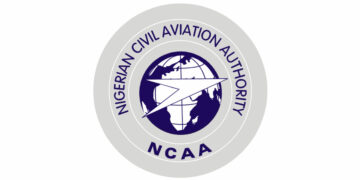Stakeholders comprising companies and organisations which apply for expatriate quota in Nigeria have written a petition to President Ahmed Bola Tinubu on the processing and allocation of the vital documents for job engagement for foreign nationals with unique expertise.
allegedly accused officials of the Ministry of Interior of sharp practices thereby denying the federal government of revenue generation.
The petitioners under the aegis of Concerned Stakeholders of Expatriate Quota Sector also alleged that the activities of the processing agents expose Nigeria to cyber terrorism, exploitation and reduction of direct foreign investment, and cripple ease of doing business in the country.
They asked the federal government to conduct a forensic investigation and stop the use of licensed agents and contractors from having access to sensitive documents with national and economic security implications for Nigeria.
The stakeholders also alleged that officials of the Ministry of Interior were abusing their offices, claiming that their actions had denied the country huge revenues.
In the petition they wrote to Tinubu, the Senate President, Speaker of the House of Representatives and copied to the Office of the Secretary to the Government of the Federation, National Security Adviser (NSA) to the President and others, the authors said they have been paying huge amount of money in taxes to the federal government and were not carried along in the rather sudden policy review that stopped civil servants with cognate professional and technical experience from handling the process.
Titled: “A Petition And An Urgent Call For A Forensic Investigation Into The High Scale Corruption, Fraudulent Activities, Abuse Of Office And Mismanagement Of Processing Of Expatriate Quota By Officials Of The Federal Ministry Of Interior”, it was signed by the national coordinator, Mr. Ene Utobong, national secretary Shegun Adewale and national publicity secretary Ismaila Badejo.
Utobong said, “This was unlike the previous case when they wanted to review the guideline in 2021, they openly advertised in several national newspapers inviting all stakeholders to be part of the review and that produced the 2022 Revised Handbook on Expatriate Quota Administration.
The stakeholders said expatriate quota processing is “a highly sensitive multi-sectoral process because it involves different companies in security, engineering, construction, oil and gas, information technology (ICT), education, health, and electricity, agriculture, among others.
“This makes it of utmost importance to Nigeria’s national interest as it is directly connected to Nigeria’s national security, economic security, growth and development. It also makes way for huge direct foreign investments and flow of foreign exchange into Nigeria, our country, which is why it should be handled by the best experts who are professionally and technically certified and have gone through security scrutiny,” the group said.
It posited that the sudden transfer of duty from ministry officials who have been carrying out the process of approval and certification for companies and organisations applying for expatriate quota smoothly without any issues to so-called licensed agents was done in secrecy and hurriedly.
According to the petitioners, “Those so-called licensed agents are cronies and relations of the top Ministry officials with no technical or professional knowledge or experience who went and registered companies as agents to screen multinational companies.
“Thorough checks revealed that the contractors and licensed agents are mushroom companies hurriedly registered by top Ministry officials.
“Top Ministry officials and their aides are using the so-called licensed agents who are indeed cronies and family relations who are used as fronts to siphon public funds collected through the licensed agents through sharp practices.
“Big national and multinational companies and organizations that have been in the business for decades are being denied Expatriate Quota allocation while newly registered companies with no credible record are favoured instead.
“Some of the sharp practices include issuing out fake Expatriate Quota allocations where they use the highly sensitive documents for questionable business activities within and outside Nigeria.
“The entire current process has the capacity to undermine Nigeria’s national security through sabotage. The Nigerian government is losing so much revenue to fraudulent and corrupt Ministry officials and their accomplices, the contractors.
“Exposing Nigeria’s economic intelligence and security to questionable elements without technical and professional backgrounds to access classified data and pass the same to enemies of Nigeria.
“These sharp and fraudulent practices expose the Nigerian economy, especially the major players, by exposing them to cyber-attack through hacking.
“It defrauds Nigeria of huge revenue through diversion of funds into private pockets and bank accounts,”, the stakeholders said.





